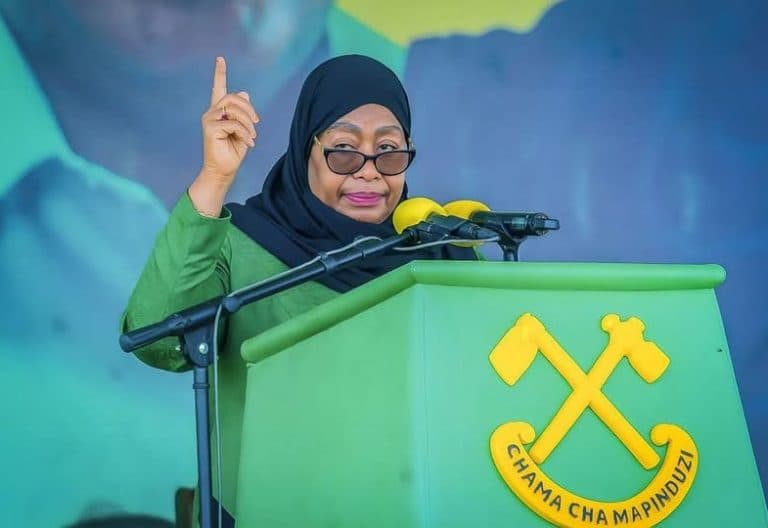We're loading the full news article for you. This includes the article content, images, author information, and related articles.
President Samia Suluhu Hassan has unveiled a new cabinet, blending loyalists and new faces, in a move seen as consolidating power after a contentious election. For Kenya, the retention of the Foreign Affairs minister signals stability in regional policy, though underlying trade tensions remain a key concern.

Tanzanian President Samia Suluhu Hassan announced a significant cabinet reshuffle on Monday, November 17, 2025, appointing 27 ministers and 29 deputy ministers just weeks after securing a second term in a disputed general election. The new lineup, sworn in on Tuesday, November 18, 2025, at the State House in Chamwino, Dodoma, is a strategic mix of continuity in key sectors and the introduction of new figures, including the son of a former president and members of her own family, sparking accusations of nepotism.
The announcement comes against a backdrop of heightened political tension following the October 29, 2025, election, which saw President Samia win with 97.66% of the vote. The result was rejected by major opposition parties amid allegations of irregularities, voter intimidation, and the exclusion of key opposition candidates. The ensuing protests led to deadly clashes and a government crackdown, creating a political crisis that has drawn concern from regional and international observers.
For Kenya and the East African Community (EAC), the most critical appointment is the retention of Ambassador Mahmoud Thabit Kombo as Minister for Foreign Affairs and East African Cooperation. Analysts suggest this move signals President Samia's intent to maintain policy continuity and stability within the regional bloc. Ambassador Kombo has been a central figure in EAC Council of Ministers' meetings and has publicly advocated for the private sector to play a more active role in regional integration. His continued presence is seen as a steadying hand amid recent bilateral friction.
Despite this, the reshuffle occurs at a sensitive time for Kenya-Tanzania relations. In July 2025, Tanzania introduced regulations restricting foreign nationals from operating in 15 economic sectors, a move Kenya argued was incompatible with the EAC's Common Market Protocol on the free movement of services and capital. The political instability following the election has already disrupted trade flows at key border points like Namanga, with the Kenya Association of Manufacturers warning of significant economic fallout. In 2024, Kenyan exports to Tanzania were valued at KSh 67.2 billion, making the stability of its southern neighbour a vital national interest.
The new cabinet features several high-profile appointments. Ridhiwani Jakaya Kikwete, a lawyer and son of former President Jakaya Kikwete, has been promoted to a full minister in the President's Office for Public Service Management and Good Governance. This appointment is viewed as a move to consolidate support from influential factions within the ruling Chama Cha Mapinduzi (CCM) party.
In a move that has drawn domestic criticism, President Samia appointed her daughter, Wanu Hafidh Ameir, as Deputy Minister of Education, Science and Technology, and her son-in-law, Mohamed Mchengerwa, as the new Minister of Health. Critics have accused the president of fostering dynastic politics and undermining meritocracy.
A notable new face is Khamis Mussa Omar, formerly Tanzania's ambassador to China, who takes over the crucial Finance Ministry portfolio from Mwigulu Nchemba, who was appointed Prime Minister on November 13, 2025. The cabinet also includes a new Ministry of Youth Development, led by Joel Nanauka, a move interpreted as a response to the youth-led protests that followed the election.
Seven ministers from the previous cabinet were dropped, including the former Deputy Prime Minister and Minister for Energy, Dr. Doto Biteko, and the ministers for Agriculture, Hussein Bashe, and Home Affairs, Innocent Bashungwa.
President Samia's reshuffle is widely seen as an effort to assert her authority and set the agenda for her final five-year term, which ends in 2030. By balancing new appointments with trusted allies, she aims to navigate the domestic political fallout from the election while reassuring regional partners of Tanzania's continued commitment to the EAC. In a televised address, the President urged the new ministers to uphold integrity and accelerate progress on national priorities.
However, the new government faces significant challenges. It must address the deep political divisions at home, manage the economic consequences of the recent unrest, and rebuild trust with regional and international partners. For Kenya, the path forward requires careful diplomatic engagement to resolve outstanding trade issues and ensure that the political situation in Tanzania does not further destabilize the regional economy.
Keep the conversation in one place—threads here stay linked to the story and in the forums.
Sign in to start a discussion
Start a conversation about this story and keep it linked here.
Other hot threads
E-sports and Gaming Community in Kenya
Active 9 months ago
The Role of Technology in Modern Agriculture (AgriTech)
Active 9 months ago
Popular Recreational Activities Across Counties
Active 9 months ago
Investing in Youth Sports Development Programs
Active 9 months ago
Key figures and persons of interest featured in this article